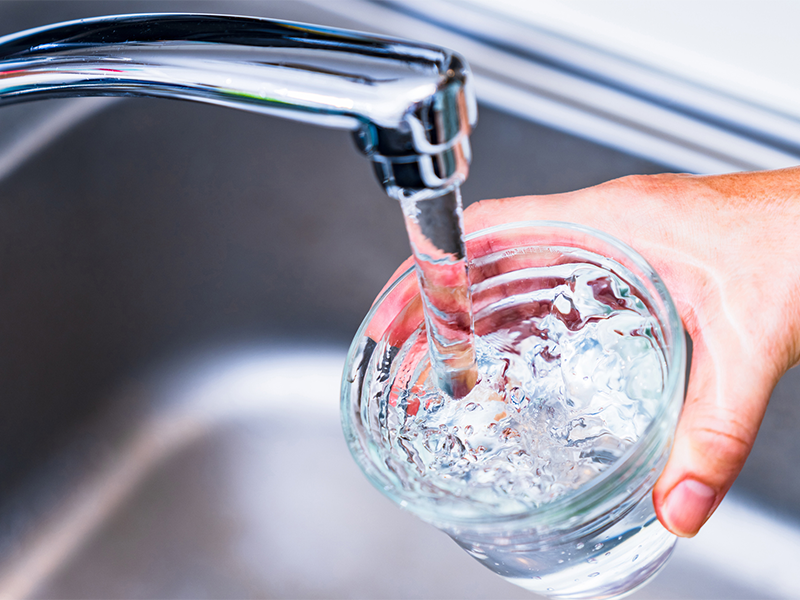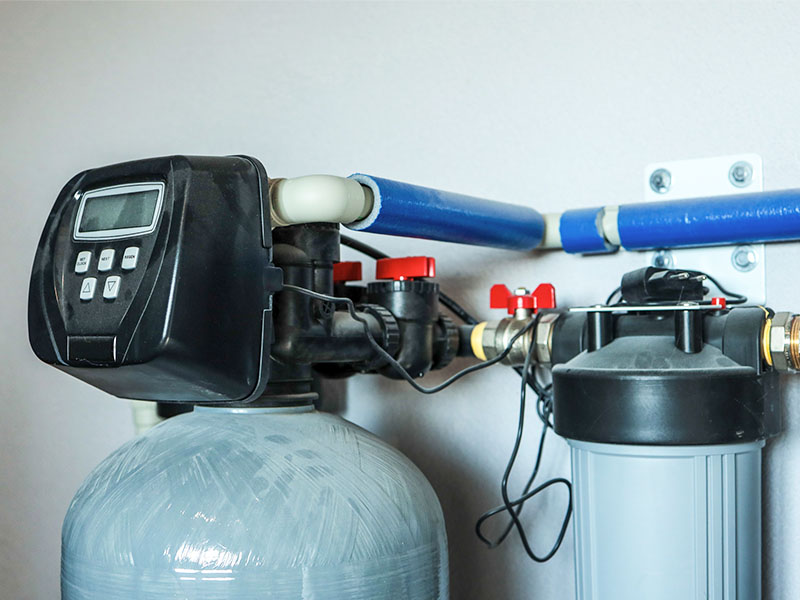Water quality directly impacts your home’s plumbing, appliances, and even daily tasks like cleaning and bathing. If you’ve ever noticed stubborn soap scum, limescale buildup, or dry skin after showering, hard water may be to blame. It contains high levels of minerals like calcium and magnesium, which can clog pipes, reduce appliance efficiency, and make cleaning more difficult. Water softening, fortunately, offers a practical solution by removing these minerals, protecting your home’s systems, and improving overall water quality.
What is Hard Water?
Hard water contains high levels of minerals like calcium and magnesium, which accumulate as water moves through soil and rock. These minerals can cause buildup in pipes and appliances, reduce water flow, and make cleaning more difficult. Water softening systems help address these issues by reducing mineral content, improving water quality, and protecting your home’s plumbing and fixtures.
Signs You Have Hard Water at Home
Hard water often leaves a white, chalky residue on faucets and showerheads, indicating high mineral content. It also affects how soap lathers, making it harder to wash effectively and leading to soap scum buildup on sinks and bathtubs. Dishes may come out of the dishwasher with spots and streaks caused by mineral deposits.
Over time, hard water can contribute to clogging in pipes and reduce the efficiency of appliances. A water softening system helps address these issues, improving cleaning performance and extending the lifespan of household fixtures.
How Water Softening Works
Water softening systems reduce hardness by replacing calcium and magnesium ions with sodium ions through an ion exchange process. As water passes through a bed of resin beads, these beads attract and capture hard minerals while releasing softer ions in return.
This process helps prevent mineral buildup in pipes and appliances, maintain water quality, and protect household fixtures. Regular system maintenance flushes out captured minerals, ensuring continued effectiveness and reliable water treatment.
Benefits of Water Softening
Water softening enhances water quality by reducing mineral buildup in pipes and appliances, helping home systems run more smoothly. It also improves cleaning by preventing soap scum and allowing detergents to work more effectively.
Treated water makes washing and cooking easier while extending the lifespan of household fixtures. With a water softening system in place, appliances operate more efficiently, and plumbing remains in better condition over time.
Choosing the Right Water Softener for Your Home
Selecting the right water softener starts with assessing your household’s water usage and mineral levels. The system should have the capacity to treat water effectively and prevent mineral buildup.
Key features to consider include regeneration methods, durability, and overall efficiency. A well-designed unit ensures consistent water quality and protects household fixtures.
Maintenance is another important factor. The chosen system should have clear service guidelines and easily available replacement components to keep it functioning properly.
Customer reviews and technical data can help in making an informed choice. Reliable brands offer systems that effectively manage hard water and improve home performance over time.
Installation & Maintenance Tips
Water softening units are installed near key plumbing points for easy access during servicing. Technicians place the system in a clean, accessible area to ensure smooth operation and straightforward maintenance.
During installation, professionals follow industry standards to secure all connections and confirm proper functionality. A well-installed system improves water quality and protects household fixtures.
Routine maintenance also helps keep the system efficient. Regular checks ensure that resin beads and filters remain in good condition, preventing mineral buildup and extending the unit’s lifespan.
Meanwhile, following the manufacturer’s guidelines for service schedules is essential. Maintenance tasks include cleaning components and testing water hardness levels, ensuring uninterrupted water softening performance.
Addressing Common Myths About Water Softeners
Some homeowners believe that water softeners have little impact on daily tasks. In reality, these systems reduce mineral buildup, making cleaning easier and improving appliance performance.
Another common misconception is that water softeners lead to high ongoing costs due to salt usage. However, they efficiently manage mineral levels, providing long-term benefits without excessive expenses.
Many assume that water softening requires extensive upkeep. In truth, routine maintenance involves simple cleaning and occasional servicing to keep the system running smoothly.
Some also worry that water softeners change the taste of water. Nonetheless, the fact remains that the treatment process preserves water quality while reducing mineral content, creating a better home water experience.
Softer Water for You!
Kel Tren Watercare delivers top-tier water softening solutions designed to protect your home’s plumbing, appliances, and overall water quality. With our cutting-edge systems, you can say goodbye to stubborn limescale buildup, inefficient cleaning, and costly appliance repairs. Our expert team is committed to providing water treatment options that fit your needs, ensuring you get the best water possible. Contact us today to take the first step toward cleaner and softer water!




